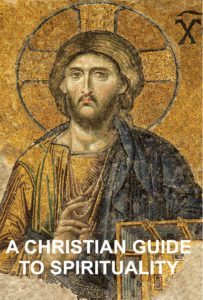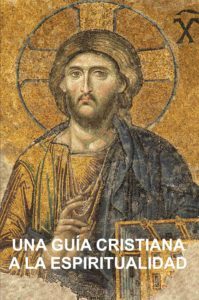Stephen W. Hiemstra's Blog, page 121
April 23, 2021
Lobe den Namen
Von Stephen W. Hiemstra
Darum sollt ihr so beten: Unser Vater im Himmel! Dein Name werde geheiligt. (Matt 6:9)
Der Gebet des Herrs erinnert uns daran, den Namen Gottes gemäß dem dritten Gebot zu ehren—solle den Namen des Herrn nicht missbrauchen—weil alle anderen Gebote darauf hängen (Exod 20:7).
Warum die anderen Geboten halten, wenn wir Gottes Namen missbrauchen?
Die praktischen Auswirkungen der Ehre Gottes ergeben sich daraus, dass wir nach Gottes Bild geschaffen sind. Weil wir nach dem Bilde Gottes geschaffen sind, hat das menschliche Leben einen inneren Wert—einen Wert an sich, der sich nicht mit den Lebensereignissen ändert. Weil das Leben einen inneren Wert hat, können wir Diskriminierung, Ungerechtigkeit, Missbrauch, Misshandlung von Gefangenen, Massenvernichtungswaffen, Sterbehilfe, Abtreibung, Designerbabys und eine Vielzahl anderer verabscheuungswürdiger Praktiken nicht akzeptieren. Unsere Menschenrechte—ein Maß, das den inneren Wert widerspiegelt—existieren, weil wir nach dem Bild eines Heiligen Gottes geschaffen sind.
Unsere kapitalistische Gesellschaft konzentriert sich nicht auf innere Werte, sondern auf Marktwerte. Marktwerte ändern sich mit Umständen—sie sind volatil. Ihr Wert als Person hängt implizit von Ihrer Produktivität ab.
Wenn Sie jung, alt oder arbeitsunfähig sind, sind Sie abhängig—eine Belastung für die Arbeitendevolk. Die Marktwerte Perspektiv ist von Natur respektlos von Gottes Bild. Wenn Gott ist ohne Respekt, dann sind wir auch.
Der starke Einfluss der Marktwerte auf unser Selbstbild erklärt teilweise, warum die Depressionsraten bei Bevölkerungsgruppen—wie jungen, Erwachsenen, und Senioren, die arbeitsunfähig sind—tendenziell am höchsten sind. Die Rate von Depressionen, Selbstmord, Angststörungen, Sucht, und Scheidung scheint teilweise mit sich ändernden Berufsaussichten zu korrelieren.
Wenn Gottes Name entehrt wird, werden wir auch anfälliger für Götzendienst (Rom 1:21-23). Warum den Gott der Bibel anbeten, wenn mein Einkommen und mein Status in der Gesellschaft mehr von meinem Familienerbe, meiner Bildung und meiner harten Arbeit abhängen? Also laufe ich natürlich zu allen möglichen Vertretern für Gott, die wie Versicherungen arbeiten, um die Höhen und Tiefen des Lebens zu bewältigen. Alternativ kann ich von der Sicherheit meines Hauses, meines Ehepartners und meiner Kinder besessen sein.
Die Implikationen der Ehre des Namens Gottes kommen in der Debatte über Sterbehilfe zusammen—das Recht zu sterben. Wenn sowohl mein Selbstbild als auch meine Würde in der Gesellschaft zunehmend denselben Marktwerten unterliegen, werde ich mich genau dann dem assistierten Selbstmord hingeben, wenn ich Unterstützung von meiner Familie benötige. Und natürlich werden sie zustimmen, weil ich sowohl finanziell als auch emotional zu einer Belastung geworden bin. Folglich ist Sterbehilfe ein Übel, das sich als Mitgefühl tarnt. Wir sind nach dem Bilde eines heiligen Gottes geschaffen, der erklärt, dass das Leben gut und heilig ist (Gen 1:31).
Gib Gott Ehre. Ehre den Name über allen Namen. Du bist nach Gottes Bild geschaffen.
Lobe den Namen
Siehe auch:
Einleitung auf Ein Christlicher Leitfaden zur Spiritualität
Andere Möglichkeiten, sich online zu engagieren:
Autoren Seite: http://www.StephenWHiemstra.net
Herausgeber Seite: http://www.T2Pneuma.com
Mitteilungsblatt: https://bit.ly/Bright_2021
The post appeared first on T2Pneuma.net.
April 20, 2021
Bell’s Characters Sparkle

James Scott Bell. 2020. Writing Unforgettable Characters: How to Create Story People Who Jump Off the Page. Woodland Hills: Compendium Press.
Review by Stephen W. Hiemstra
The complexity of modern fiction assures that every book must survive multiple edits as ideas, emotions, and characters evolve with each retelling. What makes a protagonist credible, likeable, and interesting; how does an antagonist grow beyond stereotype into a villain? How does a sidekick differ from other minor characters? How do the characters and plot feed on each other?
Introduction
James Scott Bell’s Writing Unforgettable Characters begins with this purpose statement. About a famous book made into a film, Bell writes:
“Every character, even the minor ones, was unique and unforgettable in their own way. They jumped off the page. So began a second major phase in my craft education—finding out how to create jump-off-the-page characters. This book reveals what I found out.” (3)
Bell’s definition of a novel fits right in here: “A novel is the record of how a character, through strength of will, fights against death.” (4) Note how he does not directly mention plot.
Bell sees character and plot as among the seven critical success factors in fiction:
Plot,Structure,Characters,Scenes,Dialogue,Voice, andTheme (126).Clearly, his definition of a novel places a strong emphasis on character, perhaps because writing has to be personalized to maintain reader interest. We gravitate towards characters that hold our empathy.
For Bell, good characters are complex, unpredictable, resourceful, and passionate and they display grit, moxie, wit, and nobility in the context of the plot. Their drive derives from wounds that motivates them to passionately avoid death, albeit physical, emotional, or professional death.
For background on James Scott Bell, check out one or more of my previous reviews (see below).
CharacterizationBell sees authors using two methods to develop their characterization, paralleling the two types of writers: plotters and pantsers. A plotter outlines characters in a dossier that answers key questions:
What is your idea of perfect happiness?Who is the greatest love of your life?What is your greatest fear?What is your greatest regret?What is your motto? (51).I found this questionnaire method interesting because other writing instructors have focused on physical characteristics, personal history, or even Myers-Briggs types, attributes less pertinent to the actual problem facing fiction authors.
A pantser more likely uses the discovery method that “starts with just enough info about a character to catch a feeling and then start the writing and see what develops.” (52).
Bell actually uses a hybrid of these two methods employing a “voice journal” of how the character might sound and look, a timeline of key years in the characters life, and a description of their profession (53-57). The idea is to develop an image of the character that is modeled after real people, even if the character is a composite of several.
Arcs and TransformationsAn important take-home in this book arose in Bell’s description of character arcs. He prefers the word transformation and offers two types.
The first type is the usual arc: the old person is transformed into a new person. In the movie, Casablanca, Rick Blaine is transformed from a bitter, lonely man, who sticks out his neck for no one, into a man on a mission, who sends his true love off with her husband and joins the war effort himself (94-96). Rick must become a better human being or die emotionally.
The second type is more nuanced where the protagonist remains the same person, only stronger, for having removed a serious moral failing. In the movie, The Fugitive, Dr. Richard Kimble does not change, but he must solve his wife’s murder mystery and clear his name while being pursued vigorously by law enforcement and confronting the actual killers (95-96). Dr. Kimble’s challenge is to survive a boatload of people trying to find and kill him.
AssessmentJames Scott Bell’s Writing Unforgettable Characters is an entertaining and insightful how-to writing book that fiction authors will want to add to their reading list.
Also See:Bell, James Scott. 2004. Plot and Structure: Techniques and Exercises for Crafting a Plot that Grips Readers from Start to Finish. Cincinnati: Writer’s Digest Books. (review)
Bell, James Scott. 2008. Revision & Self-Editing: Techniques for Transforming Your First Draft into a Finished Novel. Cincinnati: Writer’s Digest Books. (review).
Bell, James Scott. 2009. The Art of War for Writers: Fiction Writing Strategies, Tactics, and Exercises. Cinninnati: Writers Digest Books (review).
James Scott Bell. 2014. Write Your Novel from the Middle. Woodland Hills, CA: Compendium Press (review).
Bell, James Scott. 2014. How to Write Dazzling Dialogue: The Fastest Way to Improve Any Manuscript. Woodland Hills, CA: Compendium Press. (review)
Bell, James Scott. 2015. Super Structure: The Key to Unleashing the Power of Story. Woodland Hills: Compendium Press (review)
Bell, James Scott. 2019. The Last Fifty Pages: The Art and Craft of Unforgettable Endings. Woodland Hills, CA: Compendium Press. (review).
Bell’s Characters SparkleOther ways to engage online:Author site: http://www.StephenWHiemstra.netPublisher site: http://www.T2Pneuma.com Newsletter: https://bit.ly/Bright_2021
The post Bell’s Characters Sparkle appeared first on T2Pneuma.net.
April 19, 2021
Lord’s Prayer: Monday Monologues (podcast) April 19, 2021

By Stephen W. Hiemstra
This morning I will share a prayer and reflect on the Lord’s Prayer. After listening, please click here to take a brief listener survey (10 questions).
To listen, click on this link.
Hear the words; Walk the steps; Experience the joy!
Lord’s Prayer: Monday Monologues (podcast) April 19, 2021
Also see:
Monday Monologue On March 26, 2018
Other ways to engage online:
Author site: http://www.StephenWHiemstra.net,
Publisher site: http://www.T2Pneuma.com.
Newsletter: http://bit.ly/HailMary21
The post Lord’s Prayer: Monday Monologues (podcast) April 19, 2021 appeared first on T2Pneuma.net.
April 18, 2021
Prayer Day 22
 Available on Amazon.com
Available on Amazon.comBy Stephen W. Hiemstra
Heavenly Father.
Thank you for making yourself available to us in the person of Jesus Christ and through the person and ministry of the Holy Spirit.
Root out the pride in us; give us listening ears; sanctify our prayer, our lives, and our worship.
Guide us in our parenting and family relations.
In Jesus’ name, Amen.
Prayer Day 22
Also see:
Believer’s Prayer
Other ways to engage online:
Author site: http://www.StephenWHiemstra.net
Purchase Book: http://www.T2Pneuma.com
Newsletter: http://bit.ly/HailMary21
The post Prayer Day 22 appeared first on T2Pneuma.net.
Oración Dia 22
Por Stephen W. Hiemstra
Padre Celestial.
Gracias por estar disponible para nosotros en la persona de Jesucristo y por medio de la persona y ministerio del Espíritu Santo.
Elimina todo el orgullo en nosotros; danos oídos para escuchar; Santifica nuestras oraciónes, nuestras vidas, y nuestra adoración.
Guíanos en nuestras relaciónes como padres y con nuestros familiares.
En el nombre de Jesús oramos, Amén.
Oración Dia 22
Ver también:
Prefacio de La Guía Cristiana a la Espiritualidad
Otras formas de participar en línea:
Sitio del autor: http://www.StephenWHiemstra.net
Comprar Libro: http://www.T2Pneuma.com
Boletín informativo: http://bit.ly/HailMary21
The post Oración Dia 22 appeared first on T2Pneuma.net.
Gebetstag 22
Von Stephen W. Hiemstra
Himmlischer Vater.
Danke dich dass du dich uns in der Person Jesu Christi und durch die Person und den Dienst des Heiligen Geistes zur Verfügung stellen.
Wurzel den Stolz in uns aus; gib uns zu hörende Ohren; heilige unser Gebet, unser Leben und unsere Anbetung.
Führe uns in unseren Eltern und Familien Beziehungen.
In Jesu Namen, Amen.
Gebetstag 22
Siehe auch:
Einleitung auf Ein Christlicher Leitfaden zur Spiritualität
Andere Möglichkeiten, sich online zu engagieren:
Autoren Seite: http://www.StephenWHiemstra.net
Herausgeber Seite: http://www.T2Pneuma.com
Mitteilungsblatt: http://bit.ly/HailMary21
The post Gebetstag 22 appeared first on T2Pneuma.net.
April 16, 2021
Our Heavenly Father

And when you pray, do not heap up empty phrases as the Gentiles do, for they think that they will be heard for their many words. Do not be like them, for your Father knows what you need before you ask him. Pray then like this: Our Father in heaven . . . (Matt 6:7-9)
By Stephen W. Hiemstra
The first phrase in the Lord’s Prayer is: “Our Father”.
We come before God as a community under a sovereign God. Addressing God as father focuses primarily on God’s sovereignty, not God’s gender [1]. God is a benevolent sovereign who desires relational intimacy with his children. He is not a buddy god or a needy god that can be manipulated. Rather, we depend on God for everyday bread—not the other way around.
Our Human Fathers
For human fathers who are not good role models, scripture reminds us that God is a father to the fatherless (Ps 68:5). Scripture is not just “turning a phrase” here. One consequence of slavery in Egypt and later in Babylon was illegitimacy, which kept many Jewish children from ever meeting their fathers. The word, orphan, is used in over fifty verses in scripture—eleven times in the book of Deuteronomy alone. Jesus himself assures us: “I will not leave you as orphans; I will come to you.” (John 14:18) Our Heavenly Father’s love for us, His children, inspires our human fathers, not the other way around.
Christian Spirituality
Christian spirituality has a communal character—it is not my spirituality; it is our spirituality. In baptism, for example, we are presented to God and to the church. In communion, we remember our baptism and celebrate our covenantal relationship with God and with one another. We can enjoy solitude with God while recognizing the vital role our community of faith has in shaping our relationship with God. In turn, we know God better as we love one another.
The communal aspect of God’s intimacy implies that our spirituality is not focused just on warm, fuzzy feelings. Ours is not a consumer spirituality. Great panoramas, great music, great poetry, great architecture, and great intellectual achievements all point to God, but our spirituality is inherently relational. We are most likely to see God’s face in the faces of those around us.
Cain and Abel
Jesus’ stories and parables drive this point home:
So if you are offering your gift at the altar and there remember that your brother has something against you, leave your gift there before the altar and go. First be reconciled to your brother, and then come and offer your gift. (Matt 5:23-24)
Our spiritual identity is in a sovereign God and in right relationships with His people. The two are inexplicably bound together.
Doctrine of the Trinity
The doctrine of the Trinity reinforces this point. Every conversation is three-way. It is always you, me, and God. God is above us, between us, and within us. In God’s transcendence, God is all powerful and in control. Through the incarnation of Jesus Christ, God shares our pain and provides us a role model. In the Holy Spirit’s presence, God comforts and guides us. We are in relationship with God in three persons. Our identity is defined uniquely and independently in relation to each person in the Trinity (Miner 2007, 112).
But why is the Lord’s Prayer addressed to heaven? The obvious answer is that heaven is God’s home address. Another obvious answer is that heaven clarifies which father we are talking about!
Notice that almost all the petitions in the Lord’s Prayer center on God, not us. Do we listen for God’s voice? Are we approaching our sovereign God in appropriate humility?
[1] The image of God as our father makes a statement about His character. God is spirit; being neither male or female.
References
Miner, Maureen. 2007. “Back to the basics in attachment to God: Revisiting theory in light of theology.” Journal of Psychology and Theology, 35(2), 112–22.
Our Heavenly Father
Also see:
Preface to A Christian Guide to Spirituality
Other ways to engage online:
Author site: http://www.StephenWHiemstra.net
Purchase Book: http://www.T2Pneuma.com
Newsletter: http://bit.ly/HailMary21
The post Our Heavenly Father appeared first on T2Pneuma.net.
Nuestro Padre Celestial
“`Y al orar, no usen ustedes repeticiones sin sentido, como los Gentiles, porque ellos se imaginan que serán oídos por su palabrería.“Por tanto, no se hagan semejantes a ellos; porque su Padre sabe lo que ustedes necesitan antes que ustedes lo pidan.“Ustedes, pues, oren de esta manera:`Padre nuestro que estás en los cielos, . . .” (Matt 6:7-9 NBH)
Por Stephen W. Hiemstra
La primera frase de el Padre Nuestro es obviamente: “Padre Nuestro”.
Venimos antes Dios como un comunidad bajo un Dios soberano. Llamando Dios como padre centra principalmente en su soberanía,ni su género, de Dios [1]. Dios es un soberano benévolo quien desea intimidad en la relación con sus hijos y hijas. No es un compañero dios ni un dependiente dios quien puede ser manipulado. Por lo contrario, dependemos de Dios para el pan cotidiano—no al revés.
Para padres humano quien no son buen modelos a seguir, escritura nos recuerda que Dios es un padre de los sin padres (Ps 68:5 NBH). La escritura no es sólo “dando vuelta una frase” aquí. Una consecuencia de esclavitud en Egipto y más tarde en Babilonia era ilegitimidad, cual impidió muchas hijos Judío de encontrando sus padres para siempre. La palabra, huérfano, se utiliza en más que cincuenta versículos de la escritura—once veces en el libro de Deuteronomio sólo. Jesús si misma asegura nos: “`No los dejaré huérfanos; vendré a ustedes.” (John 14:18 NBH) El amor de nuestro padre celestial para nosotros, Su hijos y hijas, inspira la amor de nuestros padres humanos, no al revés.
La espiritualidad Cristiana tiene un comunal carácter—no es mi espiritualidad; es nuestra espiritualidad. En bautismo, por ejemplo, se nos presenta a Dios y a la iglesia. En comunión, recordamos nuestro bautismo y celebramos nuestra alianza con Dios y unas con la otra. Podemos disfrutar nuestra soledad con Dios mientras que reconocer el papel vital de nuestra comunidad de fe tiene en fomentar nuestra relación con Dios. A su vez, conocemos Dios mejor como nos amamos unos a otros.
El aspecto comunitario de la intimidad de Dios implica que nuestra espiritualidad no se centra sólo en los sentimientos cálidos y difusos. Nuestra espiritualidad no es la espiritualidad del consumidor. Gran panoramas, música grande, poema grande, arquitectura grande y los grandes logros intelectuales todos apuntan a Dios, pero nuestro espiritualidad es inherentemente relacional. Nosotros somos más propensos a ver el rostro de Dios en los rostros de los que nos rodean.
Las historias y parábolas de Jesús hacen esta punta:
“Por tanto, si estás presentando tu ofrenda en el altar, y allí te acuerdas que tu hermano tiene algo contra ti, deja tu ofrenda allí delante del altar, y ve, reconcíliate primero con tu hermano, y entonces ven y presenta tu ofrenda. (Matt 5:23-24 NBH)
Nuestra identidad espiritual es en un Dios soberano y en relaciones correctas con su pueblo. Los dos están misteriosamente vinculados a.
La doctrina de la Trinidad refuerza esta punta. Cada conversación es tres vías. Siempre tenemos usted, yo, y Dios. Dios es arriba nos, entre nos, y dentro nos. En la transcendencia de Dios, Dios es todopoderoso y en control. En la encarnación de Jesucristo, Dios comparte nuestro dolor y ofrece nos un modelo de papel a seguir. En la presencia del Espíritu Santo, Dios nos consuela y nos guía. Somos en relación con Dios en tres personas. Nuestra identidad se define de forma única y independientemente en relación con cada una de las tres personas de la Trinidad (Miner 2007, 112).
¿Pero, por qué El Padre Nuestro se dirigió al cielo? La repuesta obvia es que el cielo está el domicilio de Dios. Otra respuesta obvia es que el cielo se aclara a cuál padre que orar!
Nota que casi todo las peticiones en El Padre Nuestro se centra en Dios, ni nosotros! ¿Escuchamos para la voz de Dios? ¿Nos acercamos nuestro soberano Dios en la humildad apropiada?
[1] La imagen de Dios como “nuestro” padre hace una declaración acerca de Su carácter. Dios es espíritu; no ser ni hombre ni mujer.
Referencias
Miner, Maureen. 2007. “Back to the basics in attachment to God: Revisiting theory in light of theology.” Journal of Psychology and Theology, 35(2), 112–22.
Nuestro Padre Celestial
Ver también:
Prefacio de La Guía Cristiana a la Espiritualidad
Otras formas de participar en línea:
Sitio del autor: http://www.StephenWHiemstra.net
Comprar Libro: http://www.T2Pneuma.com
Boletín informativo: http://bit.ly/HailMary21
The post Nuestro Padre Celestial appeared first on T2Pneuma.net.
Unser Himmlischer Vater
Von Stephen W. Hiemstra
Und wenn ihr betet, sollt ihr nicht viel plappern wie die Heiden;
denn sie meinen, sie werden erhört, wenn sie viele Worte machen.
Darum sollt ihr ihnen nicht gleichen.
Denn euer Vater weiß, was ihr bedürft, bevor ihr ihn bittet.
Darum sollt ihr so beten: Unser Vater im Himmel! (Matt 6:7-9)
Der erste Satz im Gebet des Herr lautet: “Unser Vater.” Wir kommen vor Gott als Gemeinschaft unter einem souveränen Gott. Zu Ansprechen von Gott als Vater konzentriert sich erstweilig auf Gottes Souveränität, nicht auf Gottes Geschlecht. Gott ist ein gütiger Souverän, der eine Beziehungsintimität mit seinen Kindern wünscht. Er ist kein Kumpelgott oder bedürftiger Gott, der manipuliert werden kann. Vielmehr sind wir beim täglichen Brot auf Gott angewiesen—nicht umgekehrt.
Für menschliche Väter, die keine guten Vorbilder sind, erinnert uns die Schrift daran, dass Gott ein Vater für die Vaterlosen ist (Ps 68:5). Die Schrift ist hier nicht nur eine Phrase drehen. Eine Folge der Sklaverei in Ägypten und später in Babylon war die Illegitimität, die viele jüdische Kinder davon abhielt, jemals ihre Väter zu treffen. Das Wort Waise wird in über fünfzig Versen in der Schrift verwendet—elf Mal allein im Buch Deuteronomium. Jesus selbst versichert uns: “Ich will euch nicht als Waisen zurücklassen; ich komme zu euch.” (John 14:18) Die Liebe unseres himmlischen Vaters zu uns, seinen Kindern, inspiriert unsere menschlichen Väter, nicht umgekehrt.
Die christlicher Spiritualität hat einen gemeinschaftlichen Charakter—Es ist nicht meine Spiritualität; Es ist unsere Spiritualität. In der Taufe zum Beispiel werden wir Gott und der Kirche vorgestellt. Im Abendmahl erinnern wir unsere Taufe und feiern unser Bundesbeziehung mit Gott und miteinander. Wir können die Einsamkeit mit Gott genießen und gleichzeitig die entscheidende Rolle erkennen, die unsere Glaubensgemeinschaft bei der Gestaltung unserer Beziehung zu Gott spielt. Im Gegenzug kennen wir Gott besser, wenn wir uns lieben.
Der gemeinschaftliche Aspekt der Intimität Gottes impliziert, dass sich unsere Spiritualität nicht nur auf warme, verschwommene Gefühle konzentriert. Unsere ist keine Konsumspiritualität. Großartige Panoramen, großartige Musik, großartige Poesie, großartige Architektur und großartige intellektuelle Errungenschaften weisen alle auf Gott hin, aber unsere Spiritualität ist von Natur aus relational. Es ist am wahrscheinlichsten, dass wir Gottes Gesicht in den Gesichtern unserer Mitmenschen sehen.
Jesu Geschichten und Gleichnisse bringen diesen Punkt nach Hause:
Darum, wenn du deine Gabe auf dem Altar opferst und dort kommt dir in den Sinn, dass dein Bruder etwas gegen dich hat, so lass dort vor dem Altar deine Gabe und geh zuerst hin und versöhne dich mit deinem Bruder, und dann komm und opfere deine Gabe. (Matt 5:23-24)
Unsere spirituelle Identität ist in einem souveränen Gott und in richtigen Beziehungen zu seinem Volk. Die beiden sind unerklärlich miteinander verbunden.
Die Trinitätslehre bekräftigt diesen Punkt. Jedes Gespräch ist dreifach. Es ist immer du, ich, und Gott. Gott liegt über uns, zwischen uns, und in uns. In Gottes Transzendenz ist Gott allmächtig und kontrolliert alle Dinge. In der Inkarnation Jesu Christi teilt Gott unseren Schmerz und gibt uns ein Vorbild. In der Gegenwart des Heiligen Geistes tröstet und führt Gott uns. Wir sind in Beziehung zu Gott in drei Personen. Unsere Identität ist in Bezug auf jede dieser drei Personen der Dreifaltigkeit einzigartig und unabhängig definiert (Miner 2007, 112).
Aber, warum ist das Gebet des Herr an den Himmel gerichtet? Die offensichtliche Antwort ist, dass der Himmel Gottes Heimatadresse ist. Eine andere offensichtliche Antwort ist, dass der Himmel klarstellt, von welchem Vater wir sprechen!
Beachte, dass sich fast alle Bitten im Gebet des Herr auf Gott und nicht auf uns konzentrieren. Hören wir auf Gottes Stimme? Nähern wir uns unserem souveränen Gott in angemessener Demut?
Unser Himmlischer Vater
Siehe auch:
Einleitung auf Ein Christlicher Leitfaden zur Spiritualität
Andere Möglichkeiten, sich online zu engagieren:
Autoren Seite: http://www.StephenWHiemstra.net
Herausgeber Seite: http://www.T2Pneuma.com
Mitteilungsblatt: http://bit.ly/HailMary21
The post Unser Himmlischer Vater appeared first on T2Pneuma.net.
April 13, 2021
Butterfield Journeys from PC to JC

Rosaria Champagne Butterfield [1]. 2012. The Secret Thoughts of an Unlikely Convert: An English Professor’s Journey into Christian Faith. Pittsburgh: Crown & Covenant Publications.
Review by Stephen W. Hiemstra
What is conversion?
In postmodern thinking, conversion is an act of treason. The modern thinker believes in objectivity—a single, objective reality exists which we can study, understand, and agree on. By contrast, the postmodern thinker believes truth is socially constructed. There is not one objective truth; there is only your truth and my truth. The interpretative community (the social group) in power determines reality. Therefore, the convert from one worldview to another is accordingly a traitor (or heretic) to the interpretive community (social group) left behind. Because community boundaries are vigorously defended, conversion can be accompanied by significant costs to the convert.
IntroductionIn her book, The Secret Thoughts of an Unlikely Convert, Dr. Rosaria Champagne Butterfield writes about her conversion from lesbianism to Christianity.
Dr. Butterfield’s use of the word, convert, in her title suggests the vast distance that she traveled. One converts from one religion to another, not from one hobby to another. Lesbianism is a secular (atheistic) religion with its own philosophy (deconstructionism), cultural markers (hair-style; clothing; vocabulary; 8), public testimony (x), evangelism (8), and social networks (50). She writes:
When I became a Christian, I had to change everything—my life, my friends, my writing, my teaching, my advising, my clothes, my speech, my thoughts. I was tenured to a field that I could no longer work in (26).
A change in worldview requires a world of change. She refers to lesbianism as a sin of identity (23). What this means is that when we establish our primary identity in anything other than Christ, we commit idolatry—sin that violates the second commandment . Workaholism is another common sin of identity.
Exploring SinIn her biblical exploration of her sin, Dr. Butterfield focuses on an interesting passage:
As I live, declares the Lord GOD, your sister Sodom and her daughters have not done as you and your daughters have done. Behold, this was the guilt of your sister Sodom: she and her daughters had pride, excess of food, and prosperous ease, but did not aid the poor and needy. They were haughty and did an abomination before me. So I removed them, when I saw it. (Ezekiel 16:48-50 ESV)
The sin of Sodom was not just immorality but more importantly pride—a focus on self, entertainment-driven lust, love of money, and neglect of the poor (30-31). Does this description sound familiar?
ConversionThe details of Rosario’s conversion experience are fascinating. Her spiritual journey began with a research project. She decided to write a book on the hermeneutic (interpretative principles) used by the Christian Right—people such as Pat Robertson. Her research involved studying the Bible 5 hours a day (12) and led her to begin studying Greek (the New Testament is written entirely in Greek; 7). A newspaper article that she published critiquing the gender politics of Promise Keepers generated a lot of mail, including a thoughtful letter from a local pastor, Pastor Ken, who invited her to call and discuss the article (7-9). She called. They began a conversation that extended over a period of years as she pursued her research. But the book was never completed. From her own study of the Bible (aided by Pastor Ken’s non-anxious pastoral presence and biblical interpretation) Rosario became convinced that what the Bible said about God was true (13, 8). Baptized and raised Roman Catholic, Rosario began attending and later joined the Reformed Presbyterian Church (RPC) . She later married an RPC pastor (94).
Leader in the Gay MovementRosario’s claims to be a leader in the gay rights movement (4) are not lite fluff. To see this, just check out her reading list in preparing her proposed book on the Christian Right. For example, she read Augustine’s Confessions (50), John Calvin’s Institutes of the Christian Religion (17), and Kevin Vanhoozer’s Is There a Meaning in This Text? (87-89). These are books that challenge most seminary students—if they have read them at all—and they are required reading in understanding Christian hermeneutics (study of interpretation) and epistemology (study of knowledge). If you think that English professors sit around reading Emily Dickson all day, you vastly underestimate Dr. Butterfield’s academic bona fides .
Subversive SpiritA key takeaway from Rosario’s conversion testimony is that it was the subversive activity of the Holy Spirit, not a clever evangelist, that led her to Christ. Like many converts from Islam, her conversion began with study of the Bible .
Another important takeaway concerns Pastor Ken’s ability to be a non-anxious presence for Rosario. The RPC has a strong intellectual grounding in Calvin’s systematic theology. Systematic theology is holistic which implies that no aspect of life or faith is doctrinally neglected—its strength lies in its completeness. A non-anxious presence begins with emotional intelligence but requires intellectual rigor. Lesbians, like Muslims, ask tough questions. One earns their respect by being able to field the questions credibly, honestly, and humbly without fear. Pastor Ken’s RPC background helped him keep up his end of the conversation.
Rosario and AugustineThe Secret Thoughts of an Unlikely Convert reads like Augustine’s Confessions. As a young man, Augustine also struggled with sexual sin. And, after converting to Christianity, he played an important role in the monastic movement which encouraged candidates for ministry to practice celibacy. Augustine’s deep theology particularly influenced a young monk in the 15th century—a certain Martin Luther whose work was at the center of the Protestant Reformation. Protestants all owe a debt of gratitude to Augustine, who struggled with and overcame sexual sin. The Apostle Paul writes: And we know that for those who love God all things work together for good, for those who are called according to his purpose. (Romans 8:28 ESV)
OrganizationRosario’s book is short having only 5 chapters:
Conversion and the Gospel of Peace;Repentance and the Sin of Sodom;The Good Guys: Sanctification and Public Worship;The Home Front: Marriage, Ministry, and Adoptions; andHomeschooling and Middle Age.These chapters are preceded by a forward and acknowledgments and followed by a bibliography and other resources.
Rosario’s confession is likely to become a classic, in part, because it is timely and, in part, because it can be read on multiple levels. On the surface level, it reads as a reinvestment story : there I was; here I am. For the surface reader, she provides lots of interesting details about her life both as a lesbian and, later, as a pastor’s wife and home-school teacher. Beneath the surface, however, lies Dr. Butterfield, the intellectual. What is a presuppositional problem? (8) What is the ontological fallacy? (13) What does it mean not to believe in objectivity? (14) I was intrigued and was sorry that Rosario did not write and explain more. In particular, why did she become a lesbian? [8]
Copernican RevolutionWhat is conversion? For Rosario, it was like the Copernican Revolution. The earth went from being the center of the universe to being a planet rotating around the sun. The Copernican Revolution simplified the mathematics of planetary motion. It was much the same for Rosario. When she displaced self with the Triune God, her life was simpler, more joyful, and kingdom focused [9].
AssessmentWhat are the implications for the church? For the surface reader, Dr. Butterfield’s conversion is incomprehensible and terribly inconvenient for those that have been co-opted by ardent lesbianism and related postmodern philosophies. For deeper readers, this review only scratches the surface. Bottom line? Read and discuss the book. It is worth the time for those who believe in the resurrected Christ.
Footnotes[1] http://RosariaButterfield.com.
You shall not make for yourself a carved image, or any likeness of anything that is in heaven above, or that is in the earth beneath, or that is in the water under the earth. You shall not bow down to them or serve them, for I the LORD your God am a jealous God, visiting the iniquity of the fathers on the children to the third and the fourth generation of those who hate me (Exodus 20:4-5 ESV).
RPC adheres to the Westminster Confession which does not permit ordination of women. http://ReformedPresbyterian.org.
By contrast, her academic specialty, Queer Theory, is a topic that I have no background to evaluate (2).
For example, read or listen to the testimony of Khalil (www.MoreThanDreams.tv/Khalil.html).
See John Savage. 1996. Listening and Caring Skills: A Guide for Groups and Leaders. Nashville: Abingdon Press, pages 82-84.
[8] The only real hint in the book arises when Rosario write: I had not always been a lesbian. But once I had my first girlfriend, I was hooked and I was sure that I found my “real” self. (14) This description reads as if one who, having tasted blood, desired more—an addiction consistent with deconstructionism’s focus on power.
[9] One of the Pharisees asked him to eat with him, and he went into the Pharisee’s house and reclined at the table. And behold, a woman of the city, who was a sinner, when she learned that he was reclining at table in the Pharisee’s house, brought an alabaster flask of ointment, and standing behind him at his feet, weeping, she began to wet his feet with her tears and wiped them with the hair of her head and kissed his feet and anointed them with the ointment. Now when the Pharisee who had invited him saw this, he said to himself, “If this man were a prophet, he would have known who and what sort of woman this is who is touching him, for she is a sinner.” And Jesus answering said to him, “Simon, I have something to say to you.” And he answered, “Say it, Teacher.” “A certain moneylender had two debtors. One owed five hundred denarii, and the other fifty. When they could not pay, he cancelled the debt of both. Now which of them will love him more?” Simon answered, “The one, I suppose, for whom he cancelled the larger debt.” And he said to him, “You have judged rightly.” Then turning toward the woman he said to Simon, “Do you see this woman? I entered your house; you gave me no water for my feet, but she has wet my feet with her tears and wiped them with her hair. You gave me no kiss, but from the time I came in she has not ceased to kiss my feet. You did not anoint my head with oil, but she has anointed my feet with ointment. Therefore I tell you, her sins, which are many, are forgiven– for she loved much. But he who is forgiven little, loves little.” (Luke 7:36-47 ESV)
Butterfield Journeys from PC to JAlso See: Vanhoozer: How Do We Understand the Bible? Part 1. Augustine’s Confessions, Part 1—Overview Gagnon: Bridging the Bible and Gender Confusion, Part 1Books, Films, and MinistryOther ways to engage online:Author site: http://www.StephenWHiemstra.netPublisher site: http://www.T2Pneuma.com Newsletter: http://bit.ly/HailMary21
The post Butterfield Journeys from PC to JC appeared first on T2Pneuma.net.





